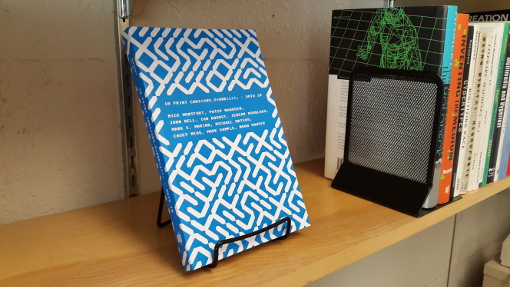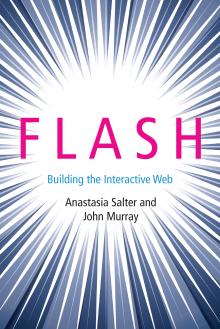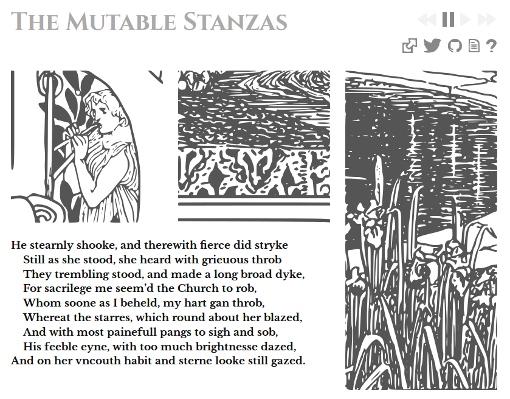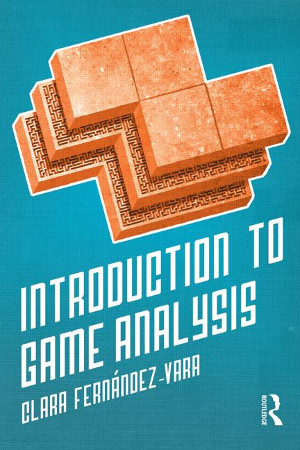Gram’s Fairy Tales: Manual & Grimoire
Taper, an online literary magazine published twice yearly, is now in its 12th issue. An independent editorial collective (Kyle Booten, Angela Chang, Kavi Duvvoori, Leonardo Flores, Helen Shewolfe Tseng, and Andy Wallace, for this issue) makes all the decisions about selections, themes for forthcoming issues, and so on, and also handles all communication with authors. They do all the work! Editors are allowed to submit works, in which case they recuse themselves from the collective’s discussion. I’m proud to be publisher of this magazine — although it’s really the editorial collective that makes it happen.


![From Restore [Return] Shift](http://nickm.com/post/wp-content/stuff/TT_zine.jpg)





